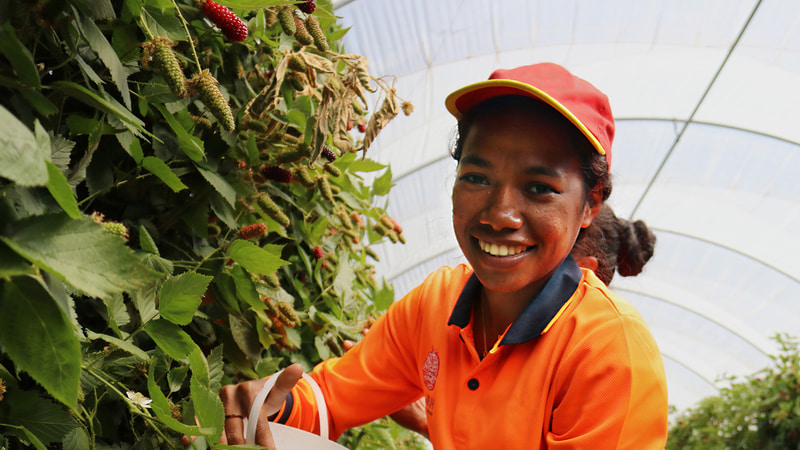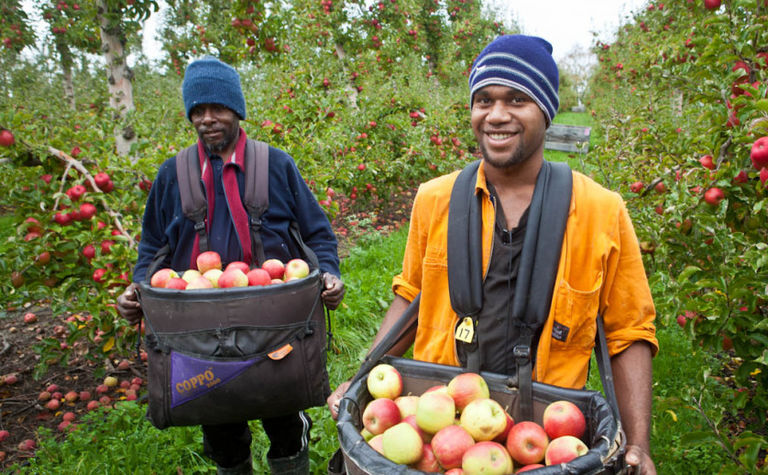The shortage of laborers is having a severe impact on the food industry, leading to rising prices and decreased availability of certain foods. To address this issue, the Pacific Australian Labour Mobility (PALM) scheme allows eligible Australian businesses to hire workers from nine Pacific islands and Timor-Leste when local workers are not available. This scheme provides much-needed labor for the food industry while also supporting families facing financial difficulties in the Pacific islands and Timor-Leste.
In this article, we’ll introduce you to the PALM scheme and explore the positive effects it has had on the food industry.
Introduction
What Is The PALM Scheme?
The PALM Scheme is a program initiated by the Australian government to allow eligible Australian businesses to hire workers from nine Pacific islands and Timor-Leste for seasonal or longer-term jobs in various positions where there are insufficient local workers available. The primary goal of the program is to address labor shortages in rural and regional areas of Australia by providing employers with access to reliable and productive workers from the participating countries. This also provides Pacific and Timor-Leste workers with the opportunity to work in Australia, develop their skills and earn an income to support their families back home.
In the past, there were other Pacific worker programs developed, such as the Seasonal Worker Programme (SWP) which began in 2012, and the Pacific Labour Scheme (PLS) which began in 2018. In April 2022, these two programs were combined to create the PALM scheme. The PALM scheme is more flexible than its predecessors, offering both short and long-term roles. Seasonal workers can stay for up to 9 months on their PALM visa, and those seeking long-term employment can stay for 1-4 years.

Why Was The PALM Program Created?
As the pandemic persists, it has become increasingly challenging for the food industry to find the necessary labor workers. According to a National Farmers Federation article, the food supply chain is currently experiencing a shortage of at least 172,000 workers, resulting in negative impacts on the availability and pricing of food products throughout the country. Fortunately, many of the job opportunities available to PALM workers align with the food industry, specifically in agriculture and horticulture, meat processing, aquaculture, and seafood processing. These sectors could greatly benefit from the addition of PALM workers to help the food industry regain its footing.

The Positive Effects The PALM Scheme Has Had On The Food Industry
One of the most significant effects of the PALM scheme on the food industry has been the alleviation of labor shortages. With many Australian companies struggling to find enough workers to keep up with the demands of production, the scheme has provided a much-needed pool of reliable, productive workers. This has resulted in improved production levels and greater efficiency in food processing and manufacturing, ultimately benefiting both the industry and the consumers.
The PALM scheme has also had a positive impact on the financial well-being of the Pacific and Timor-Leste workers who are employed under the program. By providing access to jobs in Australia, workers have been able to develop new skills and earn higher wages than they would in their home countries. This has enabled them to improve their standard of living and send more money back home, supporting the economies of their home countries.
Agriculture and horticulture are two particular food industries which have significantly benefited from the PALM program. From operating farm machines that assist cultivating, to fertilising, spraying and harvesting, PALM scheme employees have been able to assist in increasing the availability of fruits and vegetables in Australia. This scheme has helped address a critical issue faced by the industry during the COVID-19 pandemic: spoilage and waste of crops. With PALM workers, farmers can harvest crops more efficiently and sell larger quantities of food.
Another industry benefiting from the PALM scheme is aquaculture and seafood processing. Without enough workers, production is slowed down, which can negatively affect the delicate maintenance needed for breeding fish. PALM workers are taking up many jobs in the industry such as scaling, cleaning, filleting, shelling, grading, packaging seafood, and loading and dispatching products.
The meat processing industry is also benefiting from the PALM scheme, as it provides much-needed staff members to keep meat production consistent. Some of the jobs carried out by PALM workers include packing meat products, boning and butchering, operating machines, and cleaning. The scheme is helping to address the labor shortage that the industry has been facing and is ensuring that production is maintained at a steady pace.

SGA’s Employment Of The PALM Scheme
Understanding the value of this program, the team at SGA has recently signed up for the PALM scheme and has proudly employed PALM workers at sites northwest of Brisbane, Queensland.
To support these workers in adapting to the Australian way of life, we have developed specialized training programs. These training programs are designed to help them understand Australian customs and culture, which can be challenging for those who are not familiar with Western societies. Some of the topics covered in the training include “How To Grocery Shop,” “Understanding Taxes,” “Road Rules & Street Signs,” and even “Australian Slang.” Our goal is to ensure that the workers are comfortable during their stay in Australia and can easily navigate our unique Aussie culture.
We are thrilled to be a part of the PALM scheme and to witness the positive impact that these valuable employees will have on our company. We look forward to connecting with and supporting communities in the Pacific islands and Timor-Leste.

![SGA-Logo-White[27599]](https://sga.com.au/wp-content/uploads/2024/03/SGA-Logo-White27599.png)
